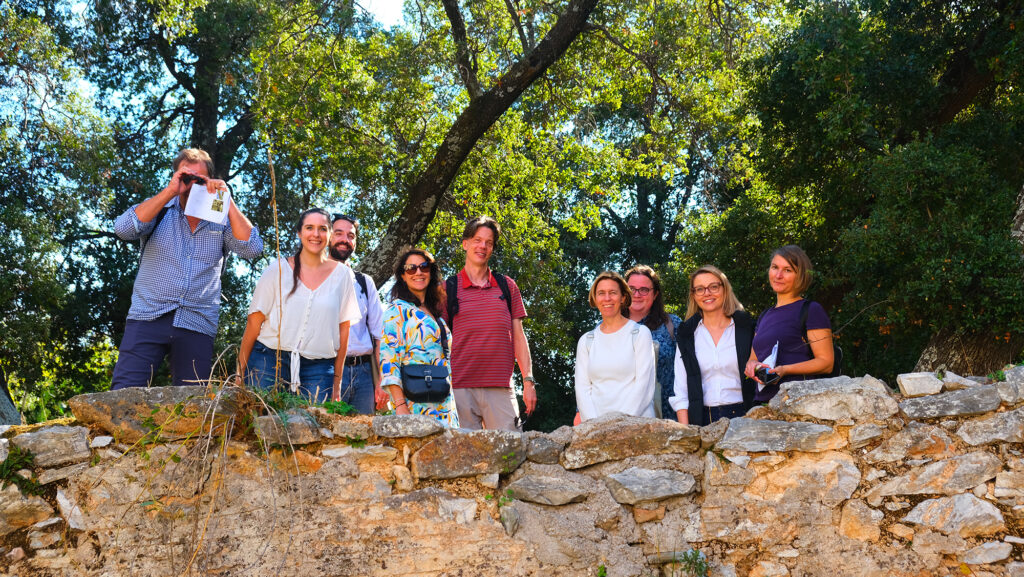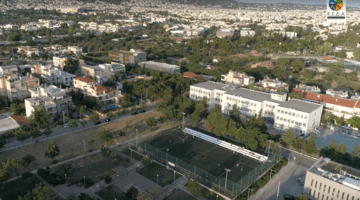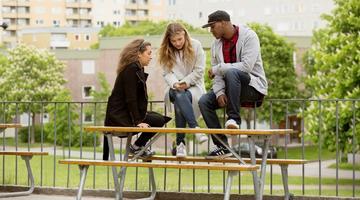How is biodiversity valued around Europe? - Local partners meet in Athens

The causes of the global biodiversity crisis and the opportunities to address them are tightly linked to the ways in which nature and biodiversity are valued and in turn, reflected in political and economic decisions. Despite the diversity of ways in which nature is perceived and valued (from offering its vital services to providing a multitude of cultural goods), most policymaking approaches have prioritized only a narrow set of values which often overlooks how communities relate to their local biodiversity or more global threats.
As a way to support social experiments working on this burning issue within the implementation framework of the European Union’s Green Deal, a Lighthouse Tour took place in Athens on the 14th and 15th of November. The 1,5-day event brought together once again the 4 local partners of the Biodiversity Stream of the SHARED GREEN DEAL project (Posoški razvojni center (Slovenia), Ballyhoura Development CLG (Ireland), Environment and Health Department, City of Stockholm (Sweden), the Municipality of Amaroussion (Greece)) to discuss the advancement of their Shared Green Deal social experiments that have been running since the late spring of 2023.
The event was organized by the practice lead partner, the Mediterranean Information Office for Environment, Culture and Sustainable Development (MIO-ECSDE) together with the Lighthouse Tour host and one of the local partners, the Municipality of Amaroussion.
After a warm welcome by the administration of the Municipality of Amaroussion, the four organizations running the different social experiments shared their challenges and successes in building trust and creating relationships with their community members and in implementing the experiment methodology (Study Circles) that aims to investigate how biodiversity is perceived in Europe.
A truly inspirational experience for the group was a site visit to urban green spaces and landmarks of the municipality to directly experience how the most important financial and business suburb of Athens is protecting its biodiversity. A walking tour of the Syngros Forest was organised, guided by Dr. Georgios Mpalotis from the Agricultural Sciences Foundation, during which the participants interacted first-hand with the richness of the local flora (typical Mediterranean vegetation). They also visited the archive of an urban beekeeping museum located in the premises of the Syngros estate and saw close-up different traditional Greek beekeeping techniques and learned about their cultural significance.

The event concluded with lively exchanges among participants on the methodology used for exploring the values Europeans place upon biodiversity: a form of adult education for cooperative learning about different concepts, skills and values, Study Circles. Discussions focused on the learning process and action goals of their respective Study Circles and how they are approaching the link between cultural values and biodiversity in their local contexts.
Overall, through a mix of presentations, exchanges and on-site visits the Shared Green Deal local partners received adequate guidance to implement the next phases of their exciting experiments. Inspiration drawn from the initiatives of the Municipality of Amaroussion prevailed: a large-scale urban system aiming to reconcile the relationship of its citizens with nature. The municipality follows a steady course ahead by exploring citizen values and whether such experiments could be a vehicle for developing new municipal social services and initiatives for preserving and restoring biodiversity.
This article was first published on the website of MIO-ECSDE, where more pictures from the visit is available. It is also available in French.
Author: MIO-ECSDE
Related Green Deal Priorities
Related localities


CONTACT
For further details please contact co-leads Professor Chris Foulds (chris.foulds@aru.ac.uk) and Professor Rosie Robison (rosie.robison@aru.ac.uk).

This project has received funding from the European Union’s Horizon 2020 research and innovation program under grant agreement No 101036640. The sole responsibility for the content of this website lies with the SHARED GREEN DEAL HAS project and does not necessarily reflect the opinion of the European Union.


